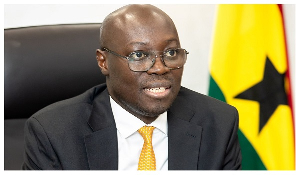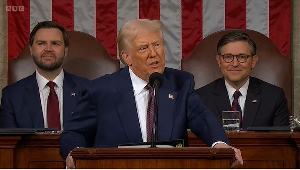The Afro Barometer Network is a series of comparative studies on public opinion, which currently includes more than 35 African countries in Round 5 (2011-2012).
Based on representative samples of the population of the countries surveyed, Afro-barometer collects and disseminates information on the views of Africans on democracy, governance, economic reform, civil society and the quality of people’s lives.
Findings from the latest Afro barometer survey of 34 African countries show a tension between the success of democratic institutions and the opacity of the tax system. The research also shows that a majority of survey participants perceive that officials who commit crimes rarely or never face consequences.
The findings which were released today (11 December, 2013) in the report “Mining, Oil State Open, But Official Impunity High: few say they can track tax revenue use.”
Twenty two of 34 African countries surveyed by Afro barometer stake their countries’ economic futures on development of mineral or oil production, but successful shepherding of these natural resources hinges on governments’ ability to manage them while maintaining state democracies.
A majority of survey participants say they do not know how the government uses revenues from any of its taxes and fees, settings the state for citizen frustration and concern. A majority also say that officials who commit crimes rarely or never face consequences.
Against these gaps in transparency and official impunity, majorities in oil and mineral rich states enjoy basic freedoms of speech and membership in political parties. Majorities also perceive their media as effective in monitoring government or reporting corruption, and say their president follow the rule of law.
The two streams of perception create interesting challenges for governments trying to negotiate with foreign companies for the best mineral and petroleum extraction deals while maintaining transparency and accountability.
Key Findings
About 6 out of 10 people in countries with extractive industries (62%)say it is fairly or very difficult to know how the government uses revenues from taxes and fees.
A majority of people (45%) in extractive state say officials often or always go unpunished.
Six in 10 people (64%) in extractive countries say they must always be careful of what the say about politics.
Majority gives their countries high ratings on several key indicators of open democracies, such free and fair elections, and freedom to political parties. On average, more than six in ten people say the media is effective in monitoring government mistakes or corruption.
Across 34 African countries, people’s rating of government performance in providing basic services, water, sanitation and electricity are poor and declining. Ratings for health and education are somewhat better, but also declining. Furthermore, large number identify serious shortcoming in this service. Rating on the handling of HIV and AIDS are exceptions, meaning that majorities approve of government’s performances.
The findings suggest that while service infrastructure such as schools, clinics and power grids are necessary for delivering services to people, infrastructure alone does not guarantee effective and high quality service.
Africans report major problems with public services including inability to access services, the poor state of facilities, and high user fees. Difficulties with access to service as well as negative personal experience with service personnel largely shape popular assessments of government performance in the continent. The mere presence of service infrastructure such as schools and clinics does little to motivate positive views about government policy performance.
General News of Friday, 13 December 2013
Source: Anita Frimpong
















